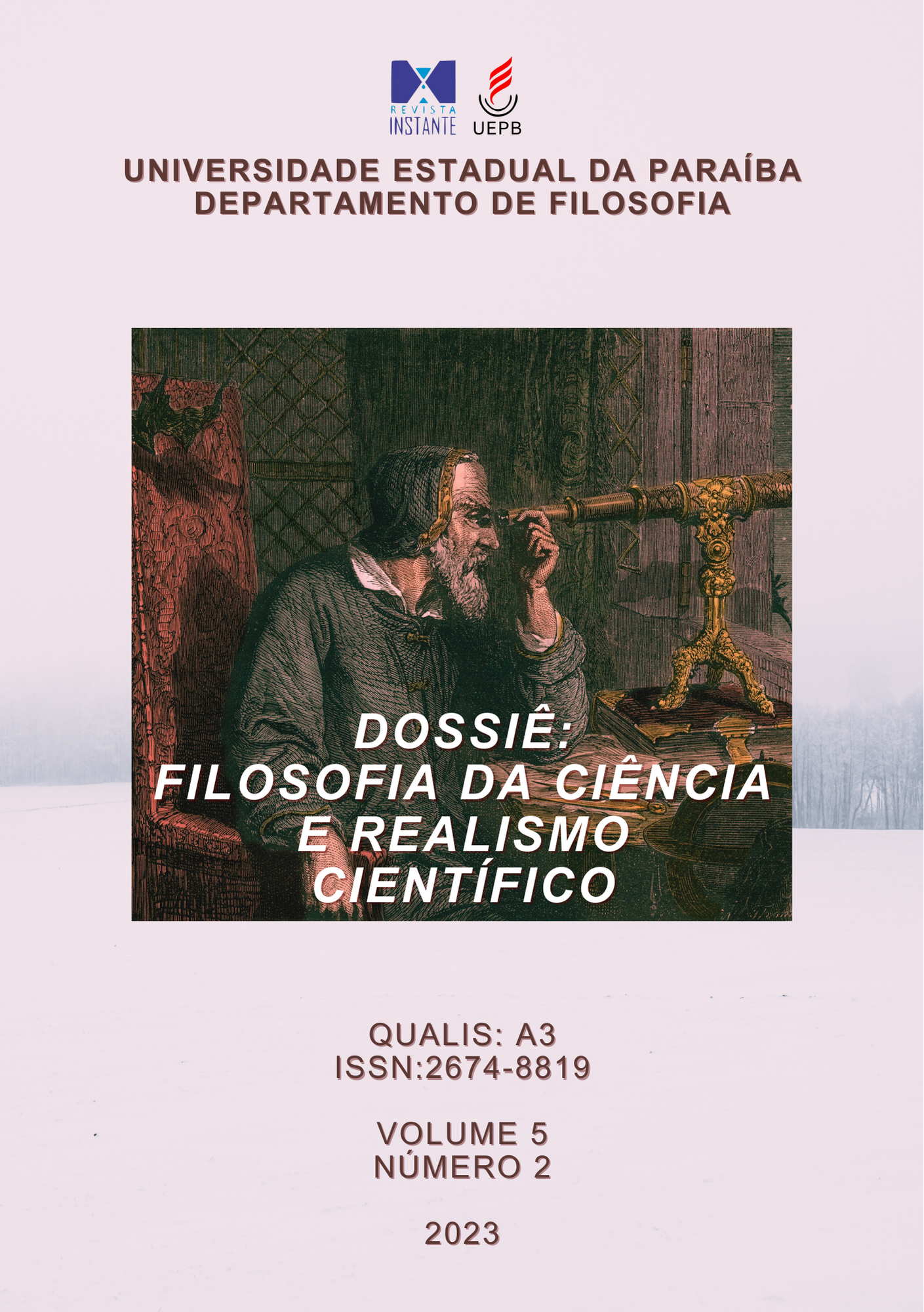SCIENTIFIC REALISM AND CONSTRUCTIVE EMPIRICISM
a debate about scientific success
Keywords:
scientific realism, constructive empiricism, miracle argument, Hilary Putnam, van FraassenAbstract
The present article's main objective is to argue in favor of scientific realism, by justifying the demand for an explanation for the success of science, as well as indicating the insufficiency of non-realistic explanation scheme offered by constructive empiricism. Scientific realism is a philosophical conception of science that assumes an optimistic epistemic attitude towards the results of scientific investigation that encompass both observable and unobservable aspects of the world. Science is successful in explaining and predicting phenomena, including novel ones, because its best theories (mature, not ad hoc, empirically and instrumentally successful, providing novel predictions, fruitful, etc.) are (partial or approximately) true and the unobservable entities present in these theories really exist. Constructive empiricism, in turn, presents an evolutionary-Darwinian explanation for the success of science. A scientific theory does not need to be true to be successful. It only needs to save the phenomena, that is, correctly describe what is observable. Current theories have survived throughout history because, among competing theories, they were the ones that were most able to adapt, that is, they were able to grasp the regularities in the phenomena that should explain. After a comparative analysis of the perspectives under debate, we consider that a sophisticated scientific realism, which avoids certain problems, such as the commitment to theory of truth as correspondence, and which has an improved version of the miracle argument, represents the strongest candidate for a satisfactory explanation of scientific success.
References
BOYD, R. N. [1983] The Current Status of Scientific Realism. In: LEPLIN, J. (Ed.) Scientific Realism. Berkeley, Los Angeles, London: University of California Press, 1984.
__________. [1990] Realism, Approximate Truth, and Philosophical Method. In: PAPINEAU, D. (Ed.) The Philosophy of Science. Oxford: Oxford University Press, 1996.
__________. Scientific realism. In: Stanford Encyclopedia of Philosophy, 2002. <http://plato.stanford.edu/entries/scientific-realism/>.
CARMAN, C. C. “Realismo científico” se dice de muchas maneras, al menos de 1111: una elucidación del término “realismo científico”. SCIENTIAE Studia – Revista Latino-Americana de Filosofia e História da Ciência da USP, São Paulo, v. 3, n. 1, pp. 43-64, 2005.
ELLIS, B. Truth and Objectivity. Cambridge: Basil Blackwell, 1990.
FIELD, H. Realism and Relativism. In: Journal of Philosophy, vol. 79, 1982.
__________. Realism, Mathematics and Modality. Oxford: Basil Blackwell, 1989.
HARMAN, G. H. The Inference to the Best Explanation. The Philosophical Review, v. 74, 1965, pp. 88-95.
LEPLIN, J. Introduction. In: ______. (Ed.) Scientific Realism. Berkeley, Los Angeles, London: University of California Press, 1984.
__________. A novel defense of scientific realism. New York, Oxford: Oxford University Press, 1997.
__________. Realism. In: SARKAR, S. & PFEIFER, J. The Philosophy of Science: An Encyclopedia. Vol 1. New York: Routledge, 2006.
LIPTON, P. Inference to the Best Explanation. New York: Routledge, 1991.
McMULLIN, E. A Case for Scientific Realism. In: LEPLIN, J. (ed.) Scientific Realism. Berkeley, Los Angeles, London: University of California Press, 1984.
NIINILOUTO, I. Critical scientific realism. Oxford: Oxford University Press, 1999.
PLASTINO, C. E. Inferir a melhor explicação. In: Osvaldo Pessoa Jr. & Luiz Henrique de Araújo Dutra (Orgs.) Racionalidade e objetividade científicas. Florianópolis: UFSC/NEL, 2013. (Rumos da Epistemologia, v. 12)
PSILLOS, S. Scientific Realism: how science tracks truth. London, New York: Routledge, 1999.
PUTNAM, H. “Mathematics, Matter, and Method. Cambridge: Cambridge University Press, 1975. (Philosophical Papers, v. 1).
__________. [1976a] Realism and reason. In: Meaning and the Moral Sciences. Boston, London, Henley: Routledge & Kegan Paul, 1978.
__________. [1976b] Lecture II. In: Meaning and the Moral Sciences. Boston, London, Henley: Routledge & Kegan Paul, 1978.
__________. The Many Faces of Realism. La Salle: Open Court, 1987.
SELLARS, W. [1956] Empiricism and the Philosophy of Mind. Cambridge: Harvard University Press, 1997.
__________. Science, Perception and Reality. New York: Humatities Press, 1962.
SMART, J. J. C. Philosophy and Scientific Realism. London: RKP, 1963.
SOUZA, E. A. Sobre a relevância filosófica do argumento do milagre. In: Trans/Form/Ação, UNESP/Marília, v. 42, n. 4, pp. 47-80, Out./Dez., 2019.
__________. Um estudo do argumento do milagre na defesa do realismo científico. 2015. Tese (Doutorado) – Faculdade de Filosofia, Letras e Ciências Humanas, Universidade de São Paulo, São Paulo, 2015.
VAN FRAASSEN, B. C. The Scientific Image. Oxford: Clarendon Press, 1980.
__________. To Save the Phenomena. In: LEPLIN, J. (Ed.) Scientific Realism. Berkeley, Los Angeles, London: University of California Press, 1984.










